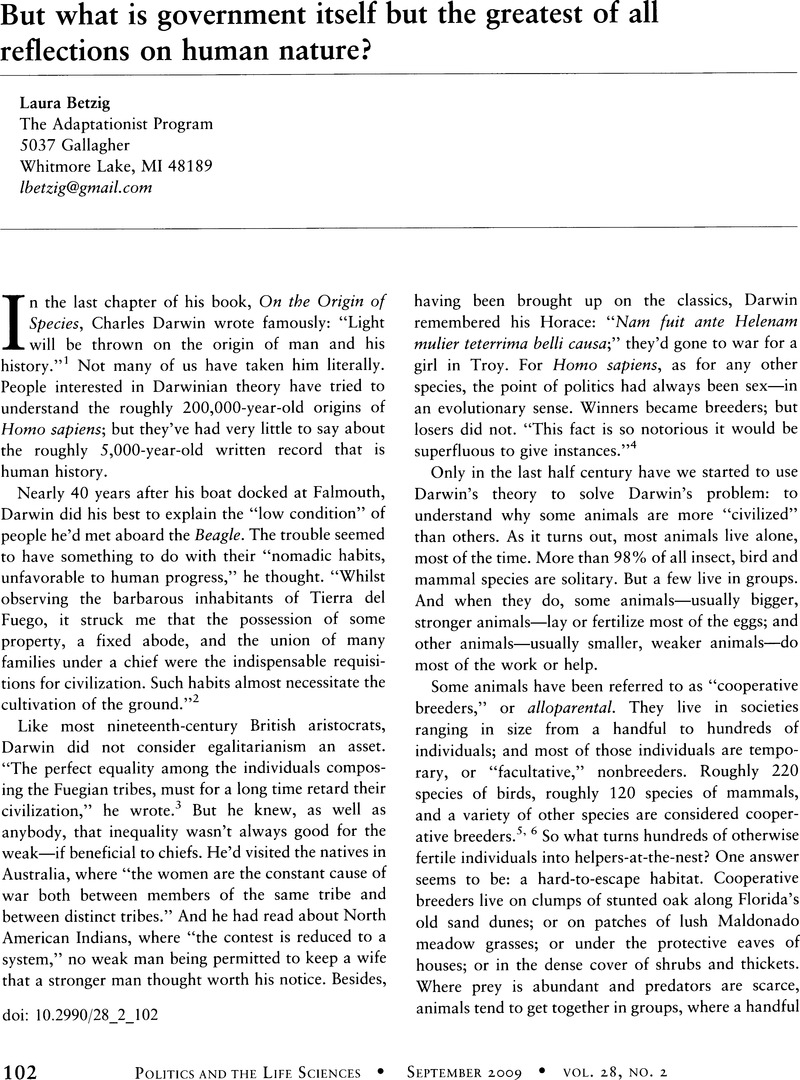Crossref Citations
This article has been cited by the following publications. This list is generated based on data provided by Crossref.
Charvet, Christine J.
and
Finlay, Barbara L.
2012.
Evolution of the Primate Brain.
Vol. 195,
Issue. ,
p.
71.
Betzig, Laura
2012.
Means, variances, and ranges in reproductive success: comparative evidence.
Evolution and Human Behavior,
Vol. 33,
Issue. 4,
p.
309.
Betzig, Laura L.
2012.
Angels and DemonsA review of The Better Angels of Our Nature: Why Violence Has Declined. By Steven Pinker. New York: Viking (Penguin Group). $40.00. xxix + 802 p.; ill.; index. ISBN: 978-0-670-02295-3. 2011..
The Quarterly Review of Biology,
Vol. 87,
Issue. 3,
p.
237.
Betzig, Laura
2014.
Eusociality in History.
Human Nature,
Vol. 25,
Issue. 1,
p.
80.
Thornhill, Randy
and
Fincher, Corey L.
2014.
The Parasite-Stress Theory of Values and Sociality.
p.
265.
Betzig, Laura
2019.
Review of Steven Pinker’s Enlightenment Now: The Case for Reason, Science, Humanism, and Progress.
Evolutionary Psychological Science,
Vol. 5,
Issue. 1,
p.
42.
Betzig, Laura
2020.
The Cambridge Handbook of Evolutionary Perspectives on Human Behavior.
p.
37.



